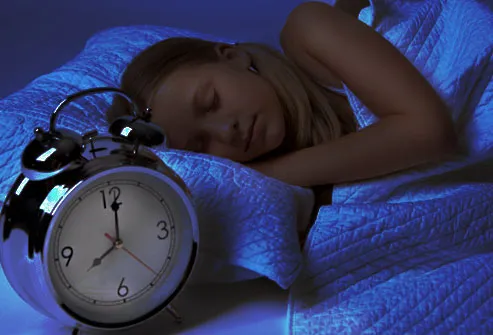While there’s no magic number when it comes to hours of sleep needed, Dr. Anju Anand, a sleep medicine doctor and respirologist with St. Michael’s Hospital, said school-aged generally children require between eight and 11 hours of uninterrupted sleep. Preschoolers, on the other hand, need even more sleep—between 11 and 13 hours.
“Sleep is important for children’s neurocognitive development,” she said. “Studies suggest a connection between poor sleep and poorer performance in school, increased behavioural problems and reduced concentration.”
Here are six tips to getting your child falling asleep earlier (without having to count sheep).
Start with the wake-up
When adjusting your child’s sleep schedule, Dr. Anand suggests tweaking wake-up time rather than bedtime.
“Children might go to their room with every intention of falling asleep, but if they’re not tired, their body won’t settle down,” she said. “When you set your morning alarm, even if it’s really hard to wake up, you can force yourself to get out of bed.”
Dr. Anand said parents can start working on changing bedtimes once wake-up times are established and children are having an easier time falling asleep.
Be consistent
Make sure children are going to bed and waking up at roughly the same time every day – including weekends. One sleep cycle feeds into the next, so if kids are sleeping in later Sunday morning, they might not be tired that night, said Dr. Anand.
“Teens especially might have more erratic sleep schedules, so when the weekend comes, make sure they go to bed and wake up at around the same time as during the week,” she said.
Regulate light
When you’re trying to bring the clock back, make sure to cut out children’s screen time at least an hour before bed. Bringing electronics like cellphones, tablets and e-readers to bed can suppress melatonin, our darkness signal, which helps our bodies fall asleep.
“Make sure the bedroom is dark and quiet before bedtime,” said Dr. Anand. “In the morning, you want to open the curtains to get that light stimulation, which tells our body to wake up.”
Avoid caffeine
Children should avoid caffeinated beverages and foods like energy drinks, pop and chocolate at least eight hours before bed. They should also avoid drinking any sorts of fluids at least one hour before bed.
Stay active
Dr. Anand said children who are active during the day tend to have better sleep quality.
Parents should also try to convince their teenage children to cut out naps during the day. Dr. Anand said if they do need those afternoon naps, they should be as short as possible – around 20 minutes.
Have a chat
If these tips aren’t’ working, Dr. Anand suggests that parents talk to their children about potential stress or anxiety they might be feeling.
“Sit down and talk to your child to see why they’re having difficulty sleeping, and if there’s something going on at school, or if they’re feeling depressed,” she said. “Mood is a really important part of sleep that often gets ignored.”
Follow these tips and you might help your kids make an “A” in school by ensuring they get enough Zzzzs.
About St. Michael’s Hospital
St. Michael’s Hospital provides compassionate care to all who enter its doors. The hospital also provides outstanding medical education to future health care professionals in 27 academic disciplines. Critical care and trauma, heart disease, neurosurgery, diabetes, cancer care, care of the homeless and global health are among the hospital’s recognized areas of expertise. Through the Keenan Research Centre and the Li Ka Shing International Healthcare Education Centre, which make up the Li Ka Shing Knowledge Institute, research and education at St. Michael’s Hospital are recognized and make an impact around the world. Founded in 1892, the hospital is fully affiliated with the University of Toronto.Source
Follow these topics: Parenting, Pediatric Health: Sleep


No comments:
Post a Comment